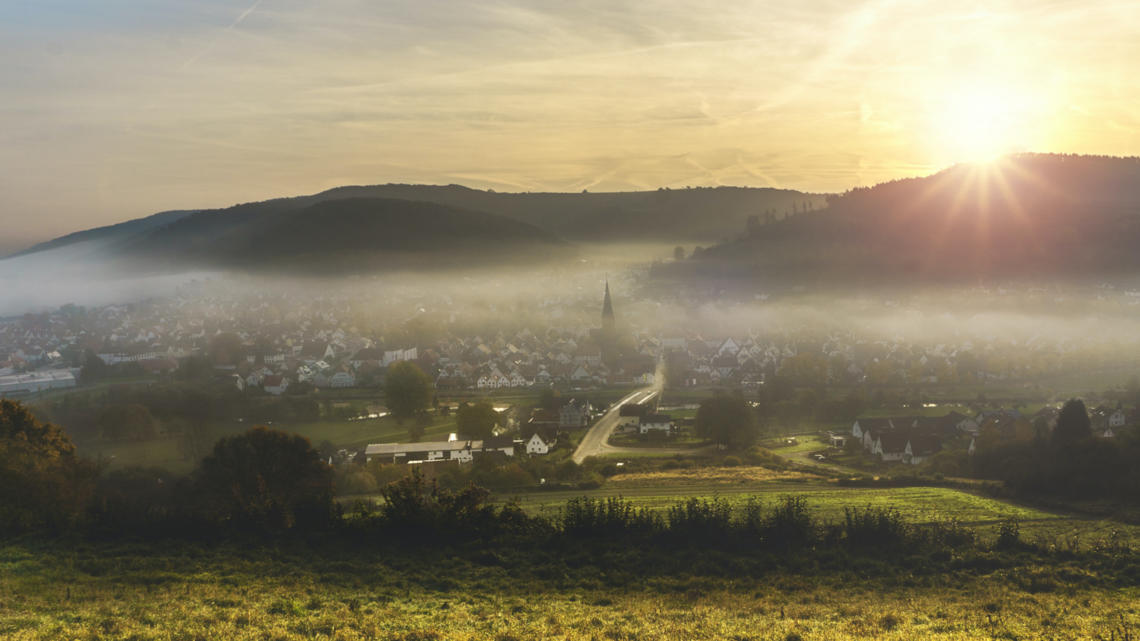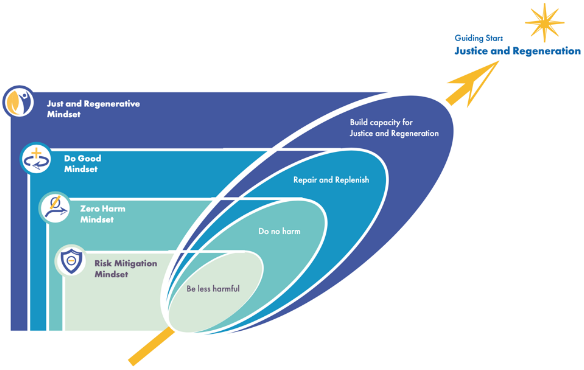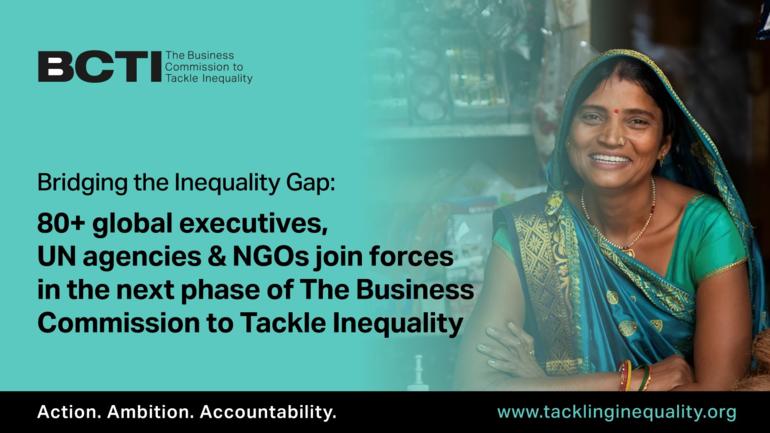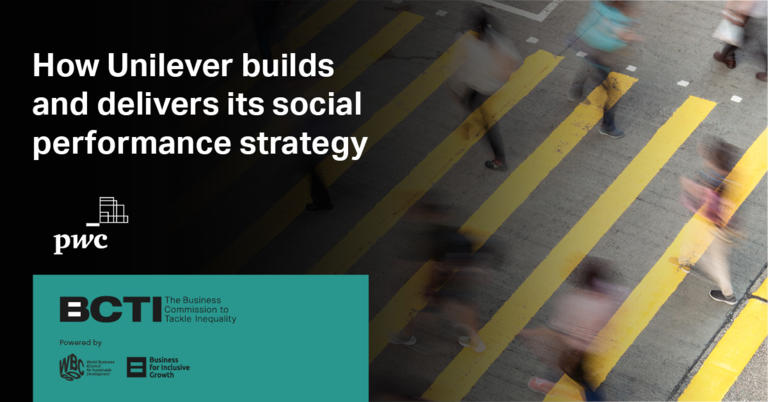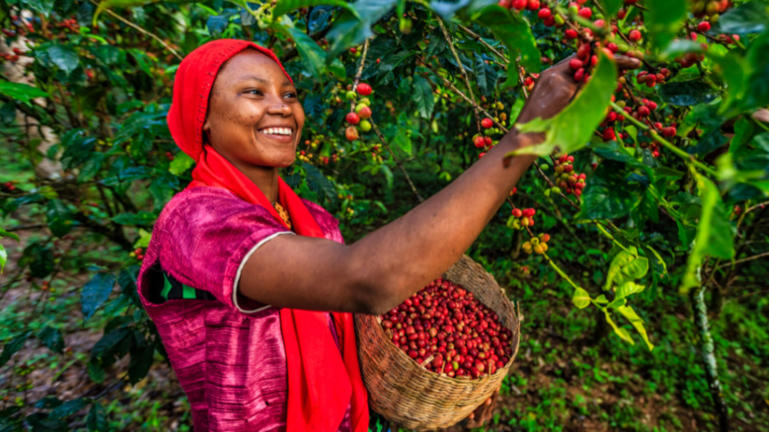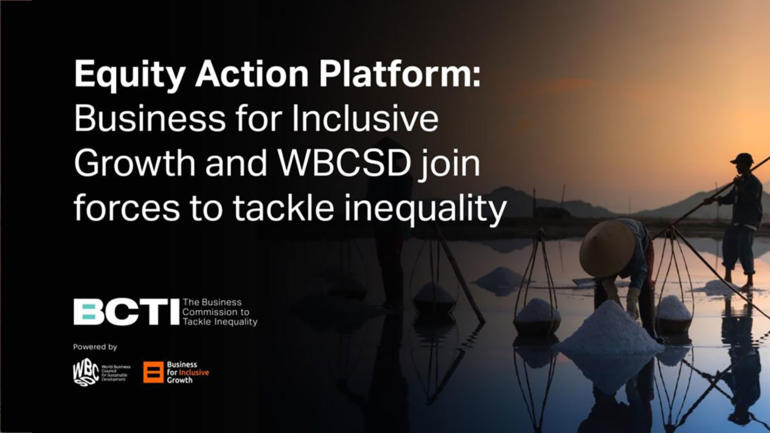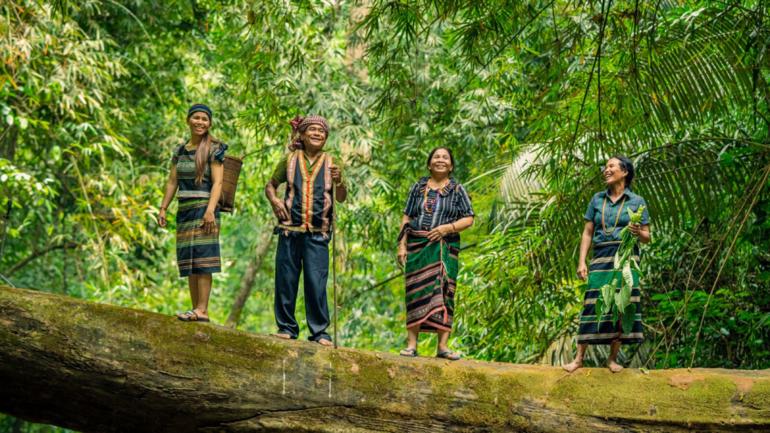Inequality. Climate. Biodiversity. Three of our most pressing challenges with a set of statistics that are extremely alarming and, in many ways, dangerous for our future. We know this. And yet, we are struggling to address any of the three effectively. It seems that the statistics aren’t yet truly galvanizing a shift in the trajectory of any of them.
Why is this?
I feel strongly that there is one main reason: we aren’t treating these three defining issues of our time as interconnected. In many instances, we remain intent on trying to tackle each as separate issues. This is why I accepted the invitation to join WBCSD’s Business Commission to Tackle Inequality – it’s an opportunity to try and make a case for doing things differently and in a collaborative manner.
So what? Stop splitting out the E from the S in ESG
There are sensible reasons why splitting E from S keeps happening. After all, it’s easier to create strategies for single issues. But in doing so, we’re missing the opportunity to design for systems change, which I feel is the only way to address the root causes of spiraling inequality, catastrophic climate change and the loss of nature.
Designing for systems change means understanding the world around us as a set of interconnected systems, redefining what we mean by sustainability and changing how we approach it.
Going from ‘sustainability’ to ‘just and regenerative’
In partnership with WBCSD, Forum for the Future has published the Business Transformation Compass, looking beyond traditional definitions of ‘sustainability’ to consider what’s really needed: a ‘just and regenerative’ future.
The Compass defines a just and regenerative future as one where: social and environmental systems are thriving; planetary health has been rapidly stabilized; human rights are universally respected; fairer ways to create and distribute value have been adopted, and resilience and vitality across generations and geographies are supported. It goes on to provide guidance for how businesses can shift their practices and approaches in line with this.
A just and regenerative future is one in which we have reconfigured all of the systems we rely on, from our socio-economic systems (food, energy, etc), our physical systems (land, water and air) and the big unlock, our economic system, such that the purpose of these systems is to enable people and planet to flourish.
Right now, the goals of many of our systems are to serve the interests of the wealthy and privileged and to perpetuate a casino economy built on fossil fuels and fuelling massive inequalities.
It is, therefore, impossible to address inequality without shifting the goals of all of our systems. Striving for just and regenerative gives us a pathway to do this.
But we need to think and act differently, starting with a shift in mindset
If you are serious about addressing inequality, then, instead, it’s time to shift your mindset. The Compass defines ‘mindset’ as the set of assumptions, concepts and values that inform how we see the world. For individuals, mindsets tell how we act, consciously or subconsciously. For communities or organizations, they underpin how we organize.
Reading this, you might feel skeptical that mindsets will help tackle our challenges. But I have learned, often the hard way, that profound transformation, the type that is needed for system change, is impossible without altering how we think and act.
And the good news is that shifting mindsets is something we can all do.
Four mindsets are prevalent right now. Where are you?
In the Compass, we set out four nested mindsets that correlate with different approaches to sustainability: risk mitigation, zero harm, do good and just and regenerative.
The risk mitigation mindset focuses on:
- resisting investments in ESG topics that don’t deliver a short-term payback
- doing the minimum needed for legal compliance and to avoid immediate risks
- reducing pollution or risk exposure
- reducing poverty, deprivation or human rights abuses
The zero harm mindset focuses on:
- recognizing the need to invest in reducing negative impacts
- aiming for zero emissions
- not contributing to biodiversity loss
- using water within ecological limits
- ending rights violations and offering opportunities equally to all
The do good mindset focuses on:
- actively creating positive change through specific interventions that redress past social inequalities and restore damaged or unhealthy systems
- investing in nature-based solutions, watershed replenishment or ecosystem restoration
- creating opportunities for specific historically disadvantaged groups
- designing interventions in a way that addresses power imbalances and differences in the ability to assert rights
Finally, the just and regenerative mindset focuses on:
- seeking to change the goals of the systems a business is a part of to support regeneration and justice
- solving interconnected human and planetary health issues so that living systems can thrive together, often at a physical landscape level
- creating norms and structures focused on continually making systems fairer
- building capacity to directly address the roots of structural inequality and to actively nurture human rights
Bringing mindset shifts to life with procurement and governance
As well as outlining the four prevalent mindsets we’re seeing in sustainability right now, the Compass highlights a set of ‘critical shifts’ – showing how approaching sustainable development challenges and business functions with a just and regenerative mindset can make a real difference.
Let’s consider procurement - a function that can often lock in and exacerbate supply chain inequalities. A shift to a just and regenerative mindset in procurement could encourage more transparent sharing of information (for example, pricing) in a non-proprietary way across the supply chain, build and invest in solid and longer-term partnerships with suppliers and encourage deep reflection about the root causes of negative, social and environmental supply chain impacts, and recognize entrenched exploitative or colonial patterns of behavior.
Or consider governance - possibly one of the biggest unlocks for tackling inequality. Governance with a just and regenerative mindset co-develops participatory governance structures that involve diverse stakeholders – especially those impacted by decisions – in decision making and which evolve over time as stakeholders’ needs shift. It also shifts from consultation to dialogue and partnership with women, indigenous peoples and broader communities in ways that are framed by, and reinforce, their de facto rights and are informed by their lived experience and socio-cultural sensitivities.
Some examples of what’s happening now
At Forum, we are working alongside many leading businesses who are already applying these shifts to how they tackle challenges such as inequality and how they deliver key corporate functions.
We recently worked with the IKEA Retail (Ingka Group) sustainability team to explore how a just and regenerative mindset could unlock smarter, more integrated implementation of their current People and Planet Positive strategy.
We’ve supported Target in developing their Target Forward strategy, helping them to translate their vision of co-creating an equitable and regenerative future into strategy and tangible action. We’re working to embed this mindset at the heart of our collaborative platforms; we’re seeking to bring social justice into the heart of the conversation around regenerative agriculture in the Americas, renewable energy in India and the future of protein in South East Asia.
We all know this is hard
We know there is no silver bullet and that change is not easy. Shifting to a just and regenerative mindset means letting go of old patterns and practices, challenging our assumptions, accepting messiness and ambiguity, trying hard to appreciate diverse perspectives, and being vulnerable.
The worst that can happen is that things might get slightly better. The best? We take our opportunity to reconfigure the world around us, to create a world based on principles of equality and where people and planet flourish.
If ever there was a point in time to think and act differently, surely it is now!
Learn more about our work with the Business Commission to Tackle Inequality

